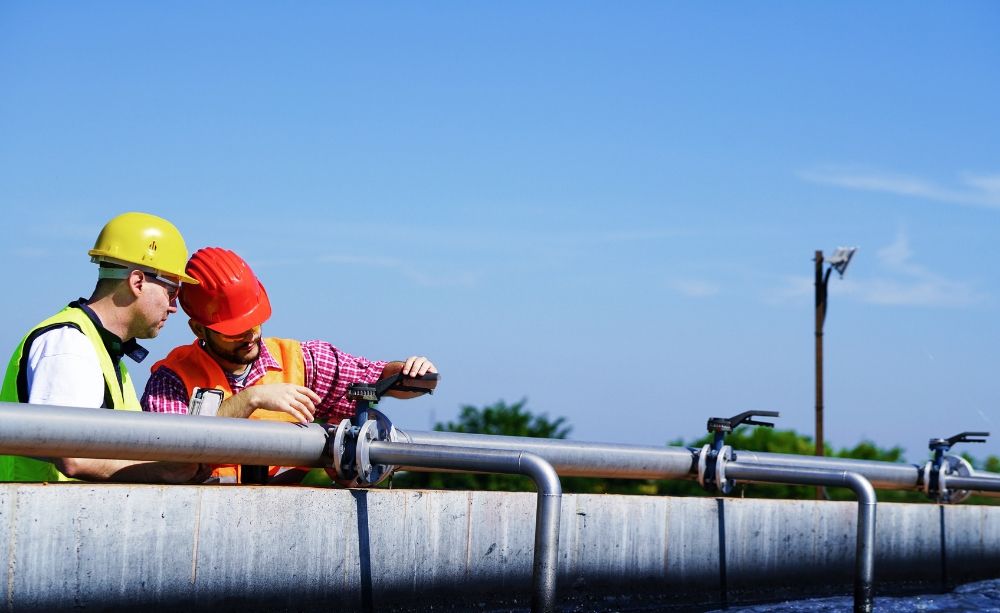Clean water is one of the most valuable resources on the planet. Every day we use a massive amount of water-it’s in the showers we take, the food we eat, the air we breathe-and if we don’t take care of it, then things will look quite bleak, that is why the installation of a commercial water softener system is important in keeping hard water damage in homes to a minimum, whilst having a positive knock-on effect in other areas too. That said, it’s important to protect and conserve water in as many ways as possible, and one of those ways is with wastewater treatment.
Simply put, wastewater is basically used water. It’s quite valuable for droughts and water shortages. However, wastewater contains many harmful substances and so we can’t release it back into the environment until it goes through treatment or a cleanse. Because of this, the importance of wastewater treatment is multifaceted-learn more about how wastewater treatment protects the environment and the planet you walk on, here!
How is it Treated?
Before we delve into the benefits of wastewater treatment, we first have to delve into how the water itself is treated. First, think about wastewater itself-water after you’ve flushed a toilet, washing your hands, and water that’s mixed with cleaning solutions are a few examples. Now, what happens with that water after we use it? On-site septic systems can treat water for individual buildings, and they’ll work to filter out solid materials. Municipalities, on the other hand, provide clean water through pump stations with specific pumps designed for wastewater treatment.
Either way, these pieces of equipment remove debris from wastewater, pump it back to treatment plants, and from there undergo several treatment elements. Once sufficiently cleaned and sanitized, it’s released back onto land or water.
Benefits of Wastewater Treatment
Restores Water Supply
In the most basic sense, wastewater treatment restores our water supply. Anyone can see how many areas in the world do not have enough water. Water scarcity affects millions of people all over the world, and with the help of wastewater treatment, these communities can get clean water.
Provides Safer and More Sustainable Ecosystems
Not only does this sanitized water do great things for communities, but it also provides safer and more sustainable ecosystems. For both aquatic and land ecosystems, wastewater treatment reduces the amount of wastewater released into the water without any treatment. With constant use of chemical fertilizers, a lot of wastewater gets into rivers and oceans and animals all around the world. Wastewater treatment minimizes those chances of unhealthy water getting into and damaging these ecosystems.
As with all nutrient sources, including fluid fertilizers, and organic manures and wastes, care must be taken with the storage, handling, and transportation of these hazardous chemicals. Put simply, any spillage of fertilizers can lead to the contamination of water and soil because of the high concentration of nutrients and therefore it is vital these dangerous substances are stored and handled safely within any agricultural industry or workplace settings. Accordingly, you can learn more about the importance of handling and storing chemicals safely by taking a look at this Storemasta guide.
Reduces Waste Pollution
To state it plainly, and as we touched on quite a few times, one of the main benefits of wastewater treatment is the fact that wastewater treatment plants reduce waste pollution. It’s simple, yet it’s a massive impact.
Understanding the importance of water treatment is one of the first steps to understanding how we as individuals and communities can improve and preserve our planet’s water shortages. When we lessen the toxins we put into water, the easier it is to clean it. Reach for natural products that won’t put harsh chemicals in the water. You could also turn to biodegradable toilet paper. We can make changes to help out our planet-don’t forget that!










 Deering Estate
Deering Estate
 Massage Envy South Miami
Massage Envy South Miami
 Calla Blow Dry
Calla Blow Dry
 My Derma Clinic
My Derma Clinic
 Sushi Maki
Sushi Maki
 Sports Grill
Sports Grill
 The Healthy Kitchen
The Healthy Kitchen
 Golden Rule Seafood
Golden Rule Seafood
 Malanga Cuban Café
Malanga Cuban Café

 Kathleen Ballard
Kathleen Ballard
 Panter, Panter & Sampedro
Panter, Panter & Sampedro
 Vintage Liquors
Vintage Liquors
 The Dog from Ipanema
The Dog from Ipanema
 Rubinstein Family Chiropractic
Rubinstein Family Chiropractic
 Your Pet’s Best
Your Pet’s Best
 Indigo Republic
Indigo Republic




 ATR Luxury Homes
ATR Luxury Homes


 2112 Design Studio
2112 Design Studio
 Hamilton Fox & Company
Hamilton Fox & Company
 Creative Design Services
Creative Design Services
 Best Pest Professionals
Best Pest Professionals
 HD Tree Services
HD Tree Services
 Trinity Air Conditioning Company
Trinity Air Conditioning Company
 Cisca Construction & Development
Cisca Construction & Development
 Mosquito Joe
Mosquito Joe
 Cutler Bay Solar Solutions
Cutler Bay Solar Solutions


 Miami Royal Ballet & Dance
Miami Royal Ballet & Dance
 Christopher Columbus
Christopher Columbus
 Pineview Preschools
Pineview Preschools
 Westminster
Westminster
 Carrollton
Carrollton
 Lil’ Jungle
Lil’ Jungle
 Frost Science Museum
Frost Science Museum
 Palmer Trinity School
Palmer Trinity School
 South Florida Music
South Florida Music
 Pinecrest Orthodontics
Pinecrest Orthodontics
 Dr. Bob Pediatric Dentist
Dr. Bob Pediatric Dentist
 d.pediatrics
d.pediatrics
 South Miami Women’s Health
South Miami Women’s Health

 The Spot Barbershop
The Spot Barbershop
 My Derma Clinic
My Derma Clinic




 Miami Dance Project
Miami Dance Project

 Rubinstein Family Chiropractic
Rubinstein Family Chiropractic
 Indigo Republic
Indigo Republic

 Safes Universe
Safes Universe
 Vintage Liquors
Vintage Liquors
 Evenings Delight
Evenings Delight





 Atchana’s Homegrown Thai
Atchana’s Homegrown Thai
 Baptist Health South Florida
Baptist Health South Florida

 Laser Eye Center of Miami
Laser Eye Center of Miami
 Visiting Angels
Visiting Angels
 OpusCare of South Florida
OpusCare of South Florida

 Your Pet’s Best
Your Pet’s Best





 HD Tree Services
HD Tree Services
 Hamilton Fox & Company
Hamilton Fox & Company


 Creative Design Services
Creative Design Services